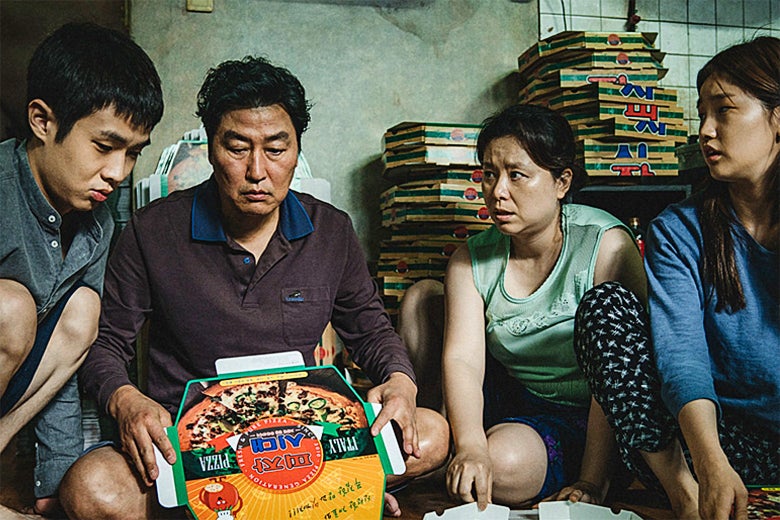SPOILER ALERT: If you have not seen the Academy Award winning best picture Parasite, the following post contains references to specific scenes although I have made every attempt not to reveal the ending or major twists in the story.
 When my wife and I went to see Parasite on a Valentine’s Day date, we knew the film centered on the disparity between rich and poor in modern day South Korea. How could we not? The flood of media attention has positioned the film as “Upstairs/Downstairs or Downton Abbey with subtitles,” exploring the relationship between two families from the polar opposites of society.
When my wife and I went to see Parasite on a Valentine’s Day date, we knew the film centered on the disparity between rich and poor in modern day South Korea. How could we not? The flood of media attention has positioned the film as “Upstairs/Downstairs or Downton Abbey with subtitles,” exploring the relationship between two families from the polar opposites of society.
Most reviews (a 98 percent rating on Rotten Tomatoes) heaped praise on director and screenwriter Bong Joon-ho’s depiction of life at both ends of the income scale. And it is well deserved. The script is intelligent. The actors melt into their roles without becoming caricatures. The visual contrast between the Kim family’s “semi-basement” apartment (literally downstairs) and the Park family’s architectural showplace (the upstairs) reeks of economic injustice. Introduction to these previously unknown trappings of wealth take the Kims on a fantasy tour of a better life even while they continue to serve the Parks.
As well as Bong presents his vision of Seoul’s dual society, I walked out of the theater unsatisfied. This morning, as often is the case, my search for a counter-intuitive interpretation kicked in. What if the narrative was not just an indictment of wealth disparity and the hopelessness of those on the lowest rungs of humanity’s ladder? What if it was about the manner in which people respond to opportunity?
I was immediately reminded of a discussion we had during my imagination class at Miami University. I had asked each student to think of something he or she thought was impossible. One student, concerned he never had enough time to do everything he needed or wanted to do, suggested his problem would be solved if only he had a 25-hour day. After exploring how one might creatively do that, I asked him, “And what would you do with that extra hour?” His reply? “Probably, nothing different,” proving the issue was not the amount of time but how you manage it.
The situation in which the Kim family has a chance to experience life on the other side of the tracks occurs when the Parks go on a weekend camping trip. Left alone to partake of the accouterments of affluence and leisure, do they use this opportunity to listen to music or read books and newspapers? Do they wander the house as if it is a museum observing the many paintings and statues the Parks have amassed?
No. Despite the availability of all this space, they huddle together around one couch and coffee table. And they over-indulge in their employer’s liquor supply, trash the house and fight among themselves. They might as well have been back in their semi-basement abode. Like my student, the Kims do not use their 48 hours free of need or want to examine how they would carry on their lives if the situation was reversed, if Mr. Kim was “Lord Crawley” and the Parks were the butler and servants.
Which brings me to the other “fairy tale” which was nominated for best picture this year, “Once Upon a Time…in Hollywood.” Re-imagine the above scene. The Kims, sitting around that coffee table, reflect on how they felt watching Mr. Kim shower his family with presents while people like themselves live in squalor and lack necessities. “If only we had their money, we would not waste it on more decadent possessions for outselves. We would create a world where there would be no need for parasites, like us.”
But just as we know there was no handsome stuntman who ensures Sharon Tate and her unborn child live happily ever after, we know it is more than likely the Kims would become more like the Parks than the other way around. I doubt that is the morale of the story Bong wished to convey. But intentional or not, Bong’s cinematic triumph is a tale of two tragedies. The first being economic injustice. The second being the disconnect between aspirations and actions. Both lessons are powerful and go hand-in-hand.
For what it’s worth.
Dr. ESP